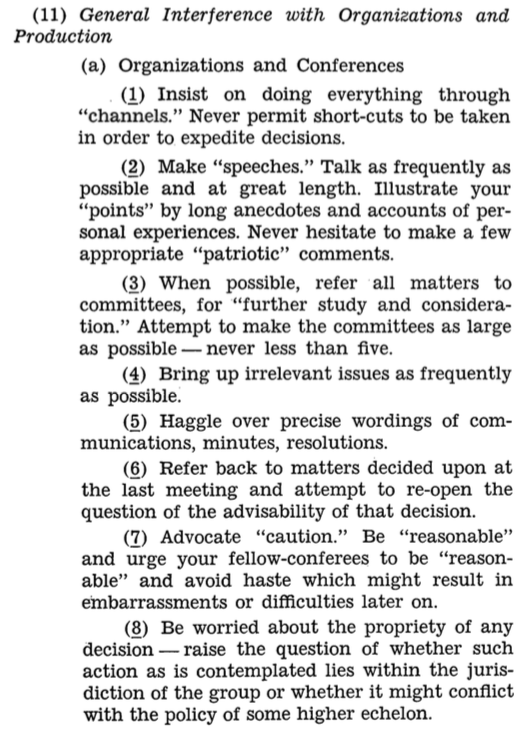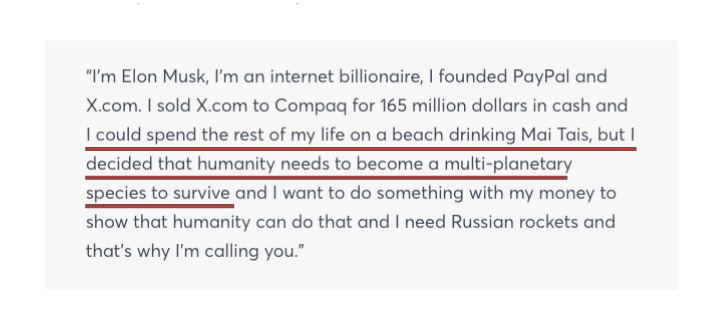Bad Marketing (9/27/20/)
Hey Friends,
Welcome back to another week of Sunday School! If you’re reading this and somehow aren’t subscribed, just click here:
We’re back to our regular programming this week after last week’s summary of 2020’s lessons.
This week I’m coming at you with a book recommendation. I’m hoping this is a book anyone can appreciate whether you typically read or not.
About 2 months ago I read Shoe Dog by Phil Knight and there’s not another book I’d recommend more. Phil Knight is the founder of Nike, and Shoe Dog tells the story of Nike’s humble origins as a small-time shoe distributor called Blue Ribbon all the way through their emergence onto the scene as one of the world’s biggest brands.
Knight has a lifetime of interesting stories and they’re perfectly told in this autobiography that it doesn’t feel like a business book. There are incredible lessons and takeaways all the way through, and it was one of the best books I’ve ever read.
If you’re looking for something new to read, this is it. Check it out.
Let’s get to this week’s lessons.

Homeroom
My Essay: An Endowment Emergency
I finally got tired of everyone hating on university endowments in the news and on social media and set out to explore on my own.
Sure, you may be familiar with the gist of endowments, but do you really know the details? I’ve tried to provide a concise summary of endowments here to give a baseline understanding of how they work and the intent behind them.
I expected to come to a similar conclusion as everyone else: that endowments are huge, greedy banks of money that schools are hiding away from the public and sitting on rather than helping lower tuition costs. But I didn’t. Endowments are useful, at least they have been for all of history.
Now, I’m not quite so sure. They’re restrictive, so in this uncertain era, it would be helpful for schools to access this money in case of emergency.
The internet has brought unprecedented change to education, and we may need to see a change in endowment funds to reflect this.
Lessons in Bad Marketing
Video: The Longest Commercial Ever Made
What we have here is an excellent breakdown of “the longest commercial ever made,” AKA the Transformers movies. This video points out that the Transformers movies are egregiously filled with product placement after product placement, to the point of embarrassment. Across the four movies making up the Transformers series, there’s an absurd 232 unique product placements, an average of 58 per movie. This means there’s one product placement for every two minutes of run time! For context, during the same years these movies were released, the movie with the 2nd most product placements had only 33.
Get out of here with that! Nobody needs to see Mountain Dew and Bud Light every few minutes when they’re trying to watch a movie about cars that transform into giant robots!
Good for Transformers, they sold a ton of sponsorship agreements for product placements and probably made a lot of money doing so. But they sold the plot and respectability of their films along with it.
If you take a look at this video you can see some particularly terrible examples of products taking over in illogical ways during the movie. Rough stuff.
Industrial Age Work
Consider this tweet from VC personality Naval Ravikant:

Today’s economy is nothing like the Industrial Age. As tech rises and industrialization falls, there’s a mass exodus of people running to jobs that give them flexibility in work and life. Now with a pandemic on hand, we have companies going 100% remote at the highest rate ever.
Why would we base our workweek around the same rules that were built for an industrial workforce? It’s just a leftover tradition that normalized among businesses. But that doesn’t have to be the case. Now, with more employees working at home with no physical separation between work life and domestic life, the lines are blurred. If we’re busy, we’re working more. If we’re slow, we’re working less. The standard workweek of 40 hours is starting to give way to a life of working when needed.
Even more interesting to consider is Naval’s point about four-year degrees and four decades to retirement. Wouldn’t it be incredible to find shorter timelines for both of those milestones? The timeline to retirement would require the most significant economical shifts but would be the biggest difference-maker in all of them.
How to Sabotage
Link: CIA Simple Sabotage Field Manual
In 1944 the CIA wrote a guide called the Simple Sabotage Field Manual. As the introduction describes:
The purpose of this paper is to characterize simple sabotage, to outline its possible effects, and to present solutions for inciting and executing it.
My favorite part is this bit about how to interfere with organizations and production:

The CIA, one of the most precise organizations in the history of the world, is telling us that a way to hold an organization back is to create more systems and rules than it can handle. I’ve done business in this way before, and I’ll tell you from personal experience that it’s excruciating for everyone involved.
This makes me appreciate places like Amazon more where the decisions are ruthlessly data-driven but made at a rapid pace, and employees are empowered to make decisions at every level. #2 and #6 basically tell you that too many meetings in a workday are ways to hold organizations back. We can all relate.
Elon History
Elon Musk remains the most fascinating human on planet Earth by a wide margin. Consider these interesting stories:
After Musk and team sold PayPal he decided to start SpaceX. When he was making plans he called Jim Cantrell, one of the world’s leading mechanical engineers. This was his message when he called:

I’m not just saying this for effect, but if I sold a company for $165 million the exact place you could find me is on a beach drinking Mai Tais, surfing, and eating fish tacos. But Elon knows that’s not who he is, and so there he goes building Tesla and SpaceX, risking his entire fortune.

His $160 million in PayPal stock would have turned into $21 BILLION by today. Get out of here.
At this point, it’s fair to assume that he’s out of the woods on the risk he took on building Tesla and SpaceX. Tesla has had a year on the stock market 2nd only to Zoom and SpaceX made a successful trip to the International Space Station. Musk is building two of the most important companies in the history of mankind, and he’s already cemented his status as a legendary human being.
Quote of the Week
“Civilization expands by the number of tasks you can perform without thinking about them" -Alfred Whitehead
That’s all for this week, thanks for attending!
See you next week,
-Ryan Mulholland


